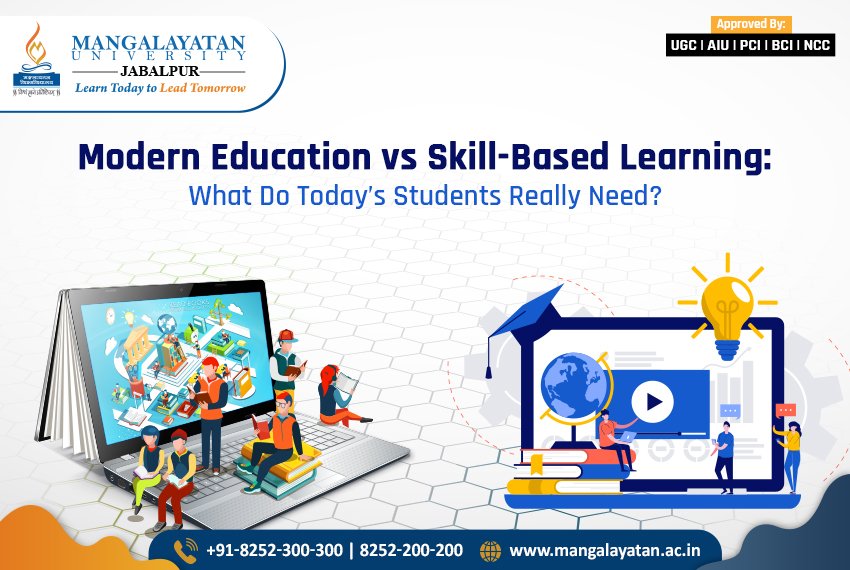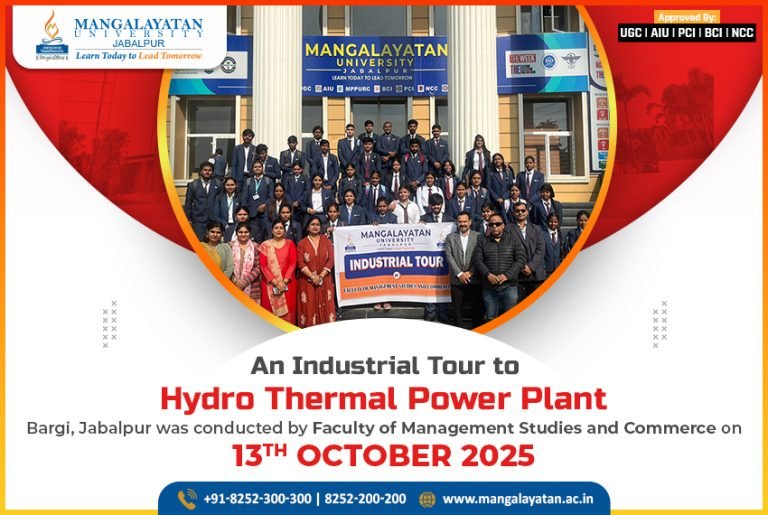Modern Education vs Skill-Based Learning: What Do Today’s Students Really Need?
Introduction
In the rapidly evolving world of today, the dynamics of education are changing faster than ever. With technology revolutionizing industries and automation repeating routine tasks, the question arises—is our education system really readying students for the real world? This leads us to the controversy surrounding current education in India versus skill-based learning. While theoretical underpinnings have been at the forefront of traditional academic models for centuries, learners in the present day require more than theory to thrive.
The rising unemployed numbers of educated youth are a sign that the gap between theoretical education and vocational skills is expanding. Employers are no longer just interested in degrees—they are looking for skills, flexibility, analytical skills, and on-the-job skills. So, students’ education systems need to be re-engineered so that core academic learning is integrated with vocational skills.
And this is where skill-based education comes into its own. It equips students with skills that can be applied in real-world work scenarios, so they are job-ready from day one. And here, Mangalayatan University, Jabalpur, is evolving as a pathbreaking educational facility that blends old-school academics with modern-day skill training. But before we move ahead into its curriculum, let’s have a look at the implications and the difference between traditional and skill-based education.
Read Also: Top MBA College in Madhya Pradesh
1. Understanding Present-Day Education in India
Present-day education in India has developed significantly in terms of the development of infrastructure, embracing technology, and revising the curriculum. The National Education Policy (NEP) 2020 was a giant step in the right direction, with a focus on holistic, learner-centered education aimed at balancing scholarly knowledge and contemporary significance. However, problems persist.
While the schools today are equipped with electronic classrooms, interdisciplinary classes, and project-based examinations, they are grade-oriented instead of growth-oriented. The students are encouraged to memorize information for test-taking purposes instead of applying it to actual problems of life. The disparity between teaching and job requirements remains a problem.
Yet, Indian education is evolving today. Colleges like Mangalayatan University, Jabalpur, are adopting technology, global exposure, and research-based learning into their curriculum. Not only does this educate students, but it also enables them to tackle complex problems in any career that they choose.
2. The Emergence of Skill-Based Learning
Skill-based learning is gaining momentum with the increase in demand for industry-ready talent. Unlike other models of education, skill-based learning focuses on hands-on training, hands-on application, and problem-solving competencies. It focuses on skills such as communication, critical thinking, collaboration, and creativity—skills that are essential in today’s fast-paced world.
Whether it’s learning to code from live projects, learning marketing from internships, or learning leadership from real-time simulations, skill-based learning allows students to transition smoothly from the classroom to the workplace. It’s not what you know, but what you can do with it.
Institutions like Mangalayatan University, Jabalpur, are paving the way by incorporating skill development modules in every course. Their focus on experiential skills as opposed to bookish knowledge is instilling confidence, competence, and employability in the students right from the start of their academic journey.
Read Also: Top BBA College in Jabalpur Madhya Pradesh
3. Traditional vs. Skill-Based Education: A Necessary Comparison
The skill-based vs. traditional schooling argument is not between them, but reconciling both in terms of achieving the balance. Traditional schooling is concerned with theory and mental discipline for adequate learning. Traditional education teaches fundamental concepts, history, theory, and structured knowledge essential for long-term understanding.
But unless practiced, such knowledge is abstract. Learning through skills bridges the gap between theory and practice. For instance, a business theory student has to work on a startup project, study case studies, and intern with real firms to understand the nuances of entrepreneurship.
Mangalayatan University, Jabalpur, has understood this need and mapped its curriculum in such a way as to offer the best of both worlds. It incorporates core subjects along with workshops, live projects, industry interaction, and soft skills training to deliver a balanced education system to the students.
4. Practical Skills vs. Theoretical Knowledge: What Matters More?
In a result-driven world, theory vs. practical skills is no longer an either-or debate. Both are required—but in different proportions depending upon the occupation. For medical doctors, engineers, and media personnel, experience is priceless. For researchers and professors, theoretical knowledge is the backbone of their occupation.
The call is to align learning outcomes with career goals. The student today needs to be multi-skilled and adaptable. A student in finance must know not only theories of the capital market but also data analytics using financial software. A literature student must know how to produce material for online media and blogs.
This is why educational systems for the students need to be altered to an integrated model. Students of Mangalayatan University, Jabalpur, receive continuous assessment, experiential learning, and skill development programs. What they try to do is change passive learners into active performers who can sustain a complex world economy.
Read Also: Top B.Com College in Jabalpur Madhya Pradesh
6. Why Choose Mangalayatan University, Jabalpur, for Modern Education Admission?
- Integrated Skill-Based Curriculum: The university blends academic excellence with employability skills to provide a well-balanced education.
- Industry Partnership: Strategic alliances with top corporations provide internship and placement opportunities in every field.
- Experienced Faculty: Incorporating real-life experience in the classroom, faculty make education practical as well as futuristic.
- State-of-the-art Infrastructure: High-tech labs, computerized classrooms, and learning management systems enable more effective learning.
- Balanced Development: Soft skills, personality development, communication, and leadership training are provided to students.
- Career-Oriented Programs: Each curriculum is created to meet the industry needs of the day; hence, graduates are industry-ready from day one.
- Global Exposure: Through seminars, guest lectures, and international collaborations, students receive a global exposure to work and learning.
- Personalized Mentorship: Individual attention and guidance are assured through limited class sizes to make students stand out in their chosen area of interest.
- Commitment to Innovation: The university encourages innovation, entrepreneurship, and research, preparing students for tomorrow.
Conclusion
In summation, the future of education lies in the integration of traditional learning with practical application. With Indian education modernizing, skill-based education is becoming a necessity to be successful at work. Universities such as Mangalayatan University, Jabalpur, are stepping forward by giving students a life-altering learning experience that is well-rounded. Whether learning practical skills over theoretical concepts or skill-based education over conventional education, students must look for programs that equip them for professional success. With its forward-thinking vision, state-of-the-art infrastructure, and emphasis on holistic development, Mangalayatan University is the ideal destination for modern students.
What are you waiting for, then? Just take a good and right decision to shape your future at Mangalayatan University, Jabalpur. Admission is open for any modern education course. Don’t let this opportunity slip from your hands. Apply Now!











